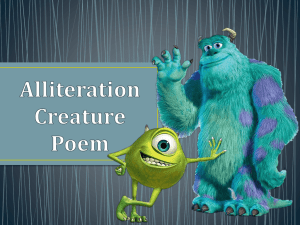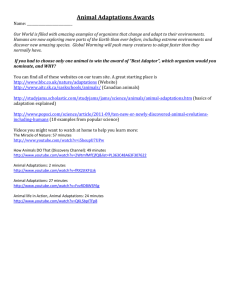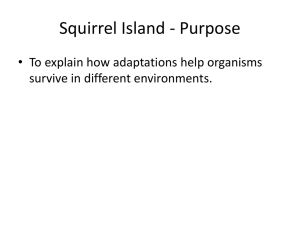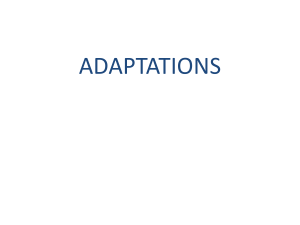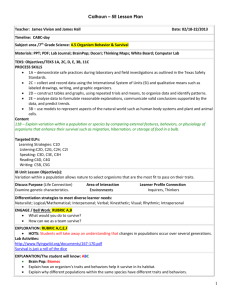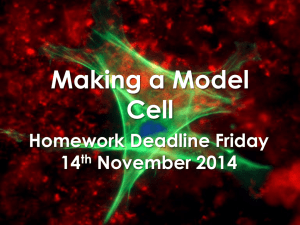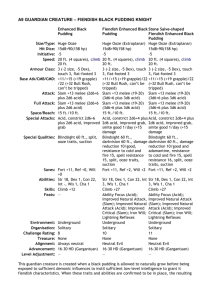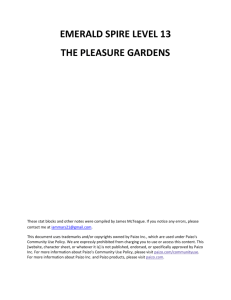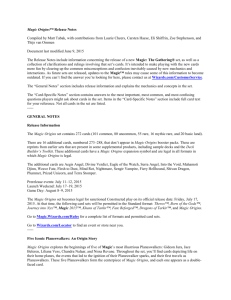LIFE-SCIENCE-Project-Based-Learning-PBL
advertisement
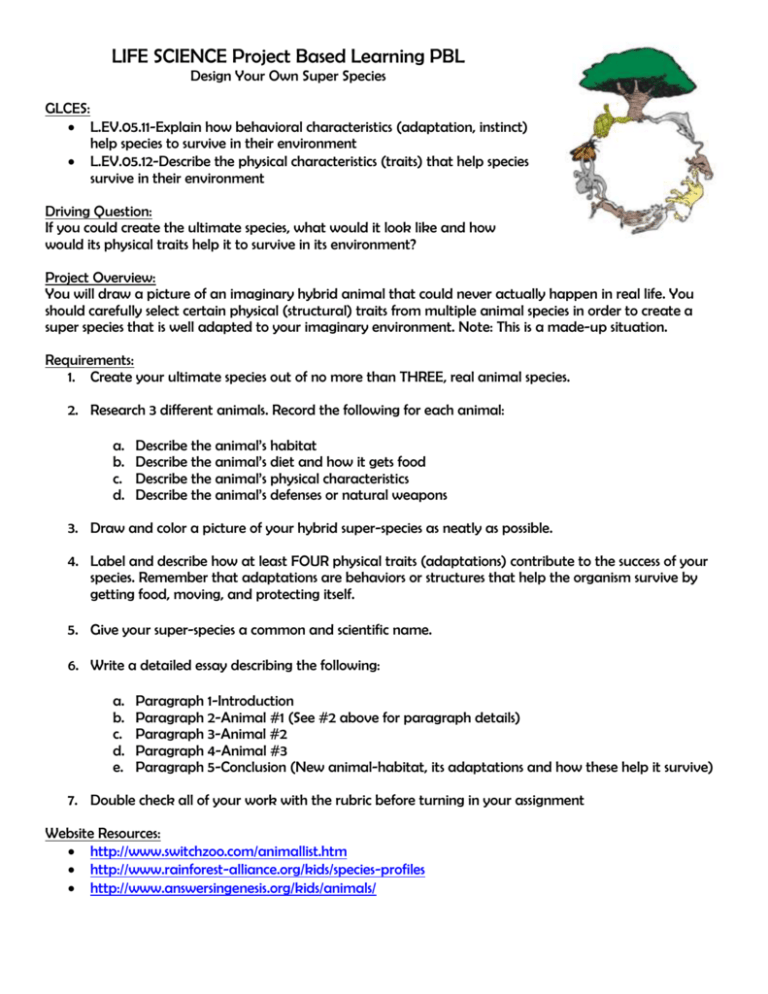
LIFE SCIENCE Project Based Learning PBL Design Your Own Super Species GLCES: L.EV.05.11-Explain how behavioral characteristics (adaptation, instinct) help species to survive in their environment L.EV.05.12-Describe the physical characteristics (traits) that help species survive in their environment Driving Question: If you could create the ultimate species, what would it look like and how would its physical traits help it to survive in its environment? Project Overview: You will draw a picture of an imaginary hybrid animal that could never actually happen in real life. You should carefully select certain physical (structural) traits from multiple animal species in order to create a super species that is well adapted to your imaginary environment. Note: This is a made-up situation. Requirements: 1. Create your ultimate species out of no more than THREE, real animal species. 2. Research 3 different animals. Record the following for each animal: a. b. c. d. Describe the animal’s habitat Describe the animal’s diet and how it gets food Describe the animal’s physical characteristics Describe the animal’s defenses or natural weapons 3. Draw and color a picture of your hybrid super-species as neatly as possible. 4. Label and describe how at least FOUR physical traits (adaptations) contribute to the success of your species. Remember that adaptations are behaviors or structures that help the organism survive by getting food, moving, and protecting itself. 5. Give your super-species a common and scientific name. 6. Write a detailed essay describing the following: a. b. c. d. e. Paragraph 1-Introduction Paragraph 2-Animal #1 (See #2 above for paragraph details) Paragraph 3-Animal #2 Paragraph 4-Animal #3 Paragraph 5-Conclusion (New animal-habitat, its adaptations and how these help it survive) 7. Double check all of your work with the rubric before turning in your assignment Website Resources: http://www.switchzoo.com/animallist.htm http://www.rainforest-alliance.org/kids/species-profiles http://www.answersingenesis.org/kids/animals/ Super-Species RUBRIC 1. Drawing the creature a. b. c. d. e. Dow the creature have a common/scientific name? Is the drawing detailed? Are at least 4 adaptations labeled and described? Is the drawing colorful? Are small drawings of the three animal species that make up your creature included? ___/5 ___/5 ___/4 ___/5 ___/3 2. Written Description of creature a. b. c. d. Is it at least 1 page in length? Is there an introduction? Are there three paragraphs that discuss the three species that make up your creature? Is there a conclusion (describes the new animal’s habitat and its adaptations)? 3. Neatness/Creativity/Effort a. Does the project show time and effort in its design? b. Is the rubric attached to the project? ___/5 ___/5 ___/15 ___/5 ___/2 ___/1 GRAND TOTAL: ______/55 PTS Super-Species RUBRIC 4. Drawing the creature f. g. h. i. j. Dow the creature have a common/scientific name? Is the drawing detailed? Are at least 4 adaptations labeled and described? Is the drawing colorful? Are small drawings of the three animal species that make up your creature included? ___/5 ___/5 ___/4 ___/5 ___/3 5. Written Description of creature a. b. c. d. Is it at least 1 page in length? Is there an introduction? Are there three paragraphs that discuss the three species that make up your creature? Is there a conclusion (describes the new animal’s habitat and its adaptations)? 6. Neatness/Creativity/Effort a. Does the project show time and effort in its design? b. Is the rubric attached to the project? ___/5 ___/5 ___/15 ___/5 ___/2 ___/1 GRAND TOTAL: ______/55 PTS Student Example: “Quackaroo” (Birdus bizarro) Quackaroo’s Habitat (Example Conclusion): The Quackaroo lives in the wetlands of the Bear River Basin, where they are well-adapted for both terrestrial and aquatic life. They eat carp and other fish from the marshy terrain. It can also eat native plants found within the wetlands. The main predator of the Quackaroo is the Red-tailed Hawk, but the Quackaroo hides in its shell to protect itself or jumps away using its strong legs. During the long, cold winter months the Quackaroo hibernates. Hibernation begins in November when they bury themselves in the mud. They live on body fat that they stored in their bodies during the fall. In the spring, when hibernation is over, the Quackaroo mates and the offspring develop in the mother’s pouch. These are examples of some adaptations that you could possibly use for a super species…use these to help you create your own super species! Brainstorming Template Name of your animal: _____________________________________________ What three animals do you want it to be made up of? _________________ __________________ _________________ Animal 1: _____________________________ (Fast fact, bullet form please) Habitat: Diet: Physical Characteristics: Animal’s Defenses: Animal 2: ______________________________ Habitat: Diet: Physical Characteristics Animal’s Defenses: Animal 3: _____________________________ Habitat: Diet: Physical Characteristics Animal’s Defenses: What 4 physical traits are you going to label and describe on your animal? o ____________________________ o ____________________________ o ____________________________ o ____________________________ What is your new animal’s habitat: _____________________________________ _________________________________________________________________________________________________________ _____________________ Animal’s common name :_____________________________________ Animal’s scientific name: ____________________________________ Resources Used: (Bibliography information) 1. 2. 3.
